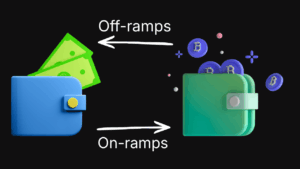Selling a website can be an exciting opportunity to capitalize on your hard work and investment. Whether you’re ready for a new venture or simply want to cash out, accurately valuing and effectively selling your website is crucial for maximizing your returns. This comprehensive guide provides a clear, step-by-step approach to website valuation and selling strategies, helping you navigate the process smoothly. In this comprehensive guide, you’ll learn how to value and sell a website to gain profit and do a good negotiation.
Importance of Accurate Website Valuation
Determining your website’s true market value is essential to attracting genuine buyers and achieving a fair selling price. An accurate valuation ensures you don’t undersell your site or scare off buyers by overpricing it. Proper valuation also helps streamline negotiations and establish credibility with potential buyers.
Key Steps in Website Valuation
1. Identify Revenue Streams
The first step is understanding your website’s earning channels. Websites typically generate revenue from:
- Affiliate commissions
- Advertising (Adsense, Mediavine)
- E-commerce transactions
- Subscription or membership fees
- Sponsored posts
Compile detailed revenue reports from the past 12 months to provide prospective buyers with solid financial data.
2. Calculate Net Profit To Value & Sell a Website
Determining your site’s net profit involves subtracting total operating expenses from overall revenue.
Net Profit = Total Revenue – Operating Expenses
Operating expenses include costs like hosting, content creation, software subscriptions, and advertising.
3. Choose a Valuation Method
Selecting an appropriate valuation method significantly impacts your final asking price. Common methods include:
- Income Multiple Method: Widely used for content-based sites, typically applying a multiple between 20 and 40 times the monthly net profit.
- Discounted Cash Flow (DCF): Useful for larger or more established businesses, it calculates present value based on projected future cash flows.
- Comparable Sales Method: Evaluates recent sales of similar websites to estimate market value.
Valuation Methods Overview Table To Value & Sell a Website
| Method | Best Suited For | Pros | Cons |
|---|---|---|---|
| Income Multiple | Profitable, stable sites | Simple, quick | Less accurate for volatile revenues |
| Discounted Cash Flow | Established, growth-oriented sites | Comprehensive, detailed | Complex, relies on assumptions |
| Comparable Sales | Generic, commonly sold websites | Easy to justify to buyers | Hard to use for niche-specific sites |
4. Include Website Assets
Your website’s assets significantly impact its value, including:
- Premium or brandable domain name
- High-quality, unique content
- Strong SEO profile and rankings
- Email subscribers and customer databases
- Social media presence and engagement levels
5. Analyze Traffic Metrics To Value & Sell a Website: Guide
High-quality traffic boosts your site’s value. Buyers value these metrics:
- Monthly unique visitors
- Average session duration
- Bounce rate
- Traffic sources (organic search, social media, referrals)
6. Evaluate Industry Trends
Keep informed about industry trends that could influence buyer interest or perceived value. Staying ahead of market trends can positively influence your site’s valuation and attractiveness.
How to Increase Your Website’s Value Before Selling
To maximize your website’s potential selling price, consider these strategic improvements:
- Boost SEO: Optimize keywords, enhance site speed, and regularly update your content.
- Diversify Income: Introduce multiple income streams to minimize buyer risk and enhance stability.
- Enhance User Experience (UX): Invest in a modern, responsive website design to attract buyers.
- Reduce Operating Costs: Lower operational expenses to boost net profit margins, increasing your valuation.
Choosing the Right Platform to Value & Sell a Website
Selecting an appropriate sales platform significantly impacts your selling experience. Here are the main platforms:
- Brokerage Services: Companies like Empire Flippers or FE International offer expert assistance, vetting potential buyers and managing sales.
- Online Auctions: Platforms like Flippa provide extensive market exposure but can be unpredictable.
- Private Direct Sales: Selling directly gives maximum control and avoids commissions but requires more effort.
Comparison Table for Sales Platforms
| Platform | Advantages | Disadvantages |
| Brokerages | Professional support, vetted buyers | Higher commissions |
| Auctions (Flippa) | Quick visibility, broad audience | Variable outcomes, less control |
| Private Sales | No commissions, full control | Time-consuming, negotiation intensive |
Negotiation and Closing the Sale To Value & Sell a Website: Guide
Successfully negotiating and finalizing your sale involves careful planning and transparency. Follow these best practices:
- Set a Fair Asking Price: Be realistic yet competitive, leaving room for negotiation.
- Provide Clear Documentation: Present comprehensive financial records and traffic analytics.
- Prepare for Due Diligence: Be ready to answer detailed buyer questions promptly.
- Create Competitive Interest: Indicate interest from multiple buyers to enhance your negotiation power.
Common Pitfalls to Avoid
Avoid these common mistakes to ensure a smooth transaction:
- Overvaluing Your Website: Unrealistic prices deter serious buyers.
- Ignoring Legal Requirements: Confirm trademarks, copyrights, and licenses are clearly documented.
- Poor Presentation: Ensure your website and its documents look professional and organized.
- Insufficient Documentation: Proper documentation expedites the negotiation and due diligence processes.
Real-world Example
For example, a fitness blog generating a steady monthly profit of $3,000 primarily through affiliate sales and ads recently sold for 35x monthly net profit ($105,000). The seller strategically improved SEO, diversified income, and presented meticulous financial records, significantly increasing the site’s valuation.
Conclusion
Selling your website for its optimal value is achievable by carefully following these valuation and sales strategies. Accurately valuing your site, enhancing its appeal, choosing the right selling platform, and handling negotiations professionally can make the selling process rewarding and profitable. Use this guide to navigate confidently through every step and secure the best deal possible for your valuable digital asset.








